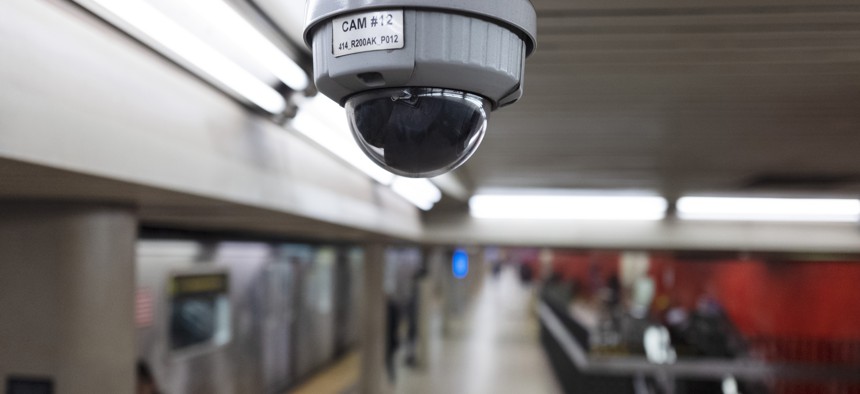What One City Hopes to Learn by Pausing Use of Facial Recognition Technology

A ban in Baltimore would restrict the city from purchasing facial recognition technology and temporarily restrict use by city agencies, residents and businesses (but not the police).
The Baltimore City Council approved legislation this summer that temporarily bans the use of facial recognition technology by residents, businesses and most city agencies.
The legislation is expected to be signed by the mayor. If adopted, city lawmakers want the bill to do more than protect residents’ privacy—they also hope it will advance the conversation on policing and public safety to include a more holistic approach.
“We have a tremendous amount of violence, so we are constantly combating this narrative that only more surveillance will make us safer,” said Baltimore City councilmember Kristerfer Burnett as he discussed the bill during a Route Fifty Future Cities event last week.
Crime is a persistent problem in Baltimore. The city has recorded more than 300 homicides every year since 2015, the same year that Freddie Gray died after sustaining a mortal injury in the back of a police van. Gray’s death in police custody led to a series of large-scale peaceful protests over police brutality but also a string of riots that caused significant damage. The city came under heavy surveillance at the time, including from the FBI, which deployed aerial surveillance over the city to monitor the protests.
Law enforcement officials have trumpeted the use of facial recognition technology. But research on the technology has raised concern about how racial and gender bias in technology algorithms and the introduction of low-quality images into photo databases can lead to misidentification.
Baltimore’s Unique Ban
A smattering of states and other cities have enacted bans or adopted restrictions on use of facial recognition technology. Baltimore’s ban is unique in that it excludes the city police department from the mandate—unlike most local governments, the state rather than the city council has authority over the police department.
The bill, which if passed will block use of facial recognition technology through December 2022, does take a significant step in that it blocks city agencies and the police department from acquiring new facial recognition technology or capabilities, Burnett said. The legislation also requires the city to disclose more about how the government uses other surveillance technology, such as closed-circuit TV cameras, automatic license plate readers, software designed to monitor social media, and gunshot detection equipment.
While the ban is in place, the city will establish a task force that will examine possible guidelines for future use of the technology or whether a permanent ban would be appropriate, Burnett said.
The task force will also take into consideration the degree to which businesses should be restricted from using facial recognition technology. Portland, Oregon was the first city to ban use of facial recognition by the private sector.
The Baltimore legislation would block companies from using facial recognition to track customers in their stores, Burnett said, providing an example of actions the bill prevents. But it would not restrict residents from using a doorbell camera system to surveil the entrance to their private homes, he said.
Ring, one doorbell camera technology company, has partnered with hundreds of local police departments to grant law enforcement access to private home security footage. Many cities, including Baltimore, have programs that subsidize residents’ purchase of Ring or other private camera systems. The specifics of the city’s program, and how data and images are shared with police, is likely to be part of the task force overview, Burnett said.
It’s important to pause the city’s use of facial recognition technology to get a handle on the ways it is being used in the city, he added. Only then can lawmakers make an informed decision about the merits of continuing to allow use of the technology.
Andrea Noble is a staff correspondent with Route Fifty.
NEXT STORY: Algorithm Could Improve How Self-Driving Cars Take on Narrow Streets





